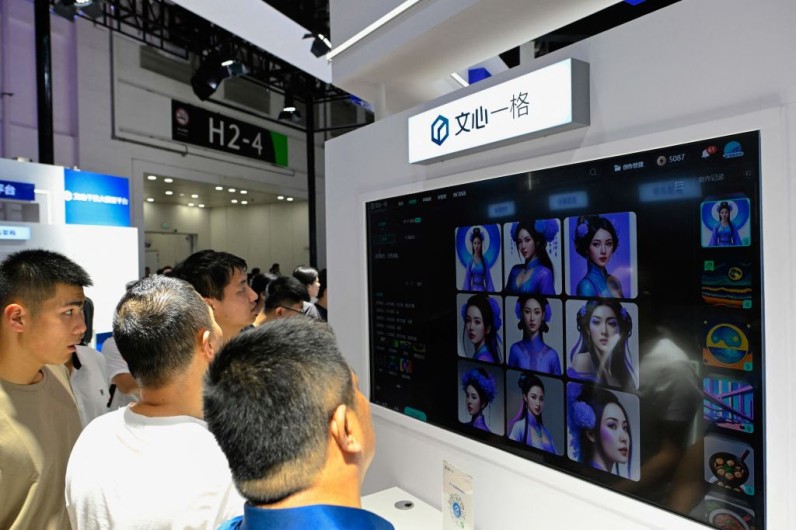Amid the escalating trade tensions between the United States and China, the impact of the US chip export ban is reportedly taking a toll on Chinese artificial intelligence (AI) startups.

US Chip Export Ban Is Not Hurting China's AI Giants Yet
According to TechCrunch, Baidu, a key player in developing China's AI counterparts to OpenAI, has managed to secure a significant quantity of AI chips, ensuring the continuous training of its ChatGPT equivalent, Ernie Bot.
During an earnings call earlier this week, Baidu's CEO, Robin Li, mentioned that the stockpile would sustain training efforts for the "next year or two."
Li emphasized that while advanced chips are crucial for AI development, Baidu is actively seeking alternatives to overcome difficulties posed by chip shortages.
Several other Chinese tech companies, including ByteDance, Tencent, and Alibaba, responded to US export controls by taking proactive measures.
They collectively ordered approximately 100,000 units of A800 processors from Nvidia, with an estimated cost of up to $4 billion, and invested an additional $1 billion in GPUs scheduled for delivery in 2024.
US Chip Export Ban Hurting China's Small AI Startups
Chinese tech giants are relatively better off amid these restrictions, but this could not be said for smaller startups. The substantial investment of these giants in hoarding chips may pose a challenge for smaller AI startups seeking to enter the large language model (LLM) race.
Facing the scarcity of advanced chips and the demand for data and AI talent, the industry is expected to enter a "consolidation stage," according to TechCrunch.
Evaluating LLMs remains challenging due to their complexity, and many Chinese AI firms resort to ranking boosting, though their real-world effectiveness is yet to be fully determined.
For smaller AI players without the financial capacity to stockpile chips, options include utilizing less powerful processors not under US export controls or exploring potential acquisition opportunities.
The evolving landscape, characterized by chip scarcity, high demand, and significant upfront investments, suggests an imminent industry shift toward consolidation.
Meanwhile, in a much light-hearted related news, China has hinted that it may send more pandas to the US following US President Joe Biden's meeting with Chinese President Xi Jinping.
According to Fox News, pandas symbolize Chinese friendship with various allies, and it began with a gift of two pandas to the National Zoo in Washington in 1972, ahead of normalized bilateral relations.
"We are ready to continue our cooperation with the United States on panda conservation, and do our best to meet the wishes of the Californians so as to deepen the friendly ties between our two peoples," Xi said during a dinner speech with American business leaders in California last Wednesday, adding that he learned that people in California and the San Diego Zoo were looking forward to "welcoming pandas back."
Biden's recent meeting with Xi in San Francisco was seen by analysts as establishing a baseline in the US-China relationship, offering potential benefits for businesses by reducing uncertainties. Biden and Xi met for the first time in nearly a year on the sidelines of the Asia-Pacific Economic Cooperation conference last week.







Join the Conversation